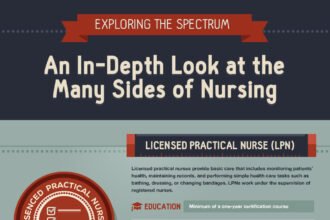Social media and the rise of the empowered patient is disrupting the cozy business of medical research and development. As I wrote last week (Let’s give patients a little more credit for their role in clinical research) even when researchers acknowledge that patients have a role in study design, recruitment and retention, that acknowledgment is grudging.
Social media and the rise of the empowered patient is disrupting the cozy business of medical research and development. As I wrote last week (Let’s give patients a little more credit for their role in clinical research) even when researchers acknowledge that patients have a role in study design, recruitment and retention, that acknowledgment is grudging.
More typical is the situation I read about in Healthcare IT News (Study: Social media can alter research priorities) about a commentary in Nature decrying the role of patients in pushing certain research priorities.
Paulo Zamboni, an Italian surgeon, suggested in 2008 that MS was not an autoimmune disease but rather a vascular disease caused by blockages in the brain. He proposed unblocking the veins by mechanically widening them – what he calls the “liberation procedure.”
After the press and Facebook groups in Canada picked up on this finding, there was a push for publicly funded trials and access to treatment. This was so even though it wasn’t advocated by the MS Society in Canada or leading MS physicians.
The [Nature] authors said unconventional and unproven treatments have long been proposed and tried for many terrible diseases. “Now tools such as Facebook and YouTube make it considerably more likely that patients learn about such therapies, without necessarily learning about their potential limitations.”
[T]raditional approaches for communicating scientific findings to the public and policy advisers such as reports, briefing notes, news releases and news conferences, are insufficient. “When patient groups are using social media to advocate and mobilize, scientists must employ similarly effective tools to communicate.”
The authors advocate efforts to improve health care literacy of the public, politicians and media –especially now that less deference is given to experts.
I can understand how the authors are upset at having their world turned upside down, but consider how they published this push for “effective tools to communicate.” I decided to read the original Nature article to see what the authors actually said, rather than letting HealthcareIT News filter it for me. So I had to laugh when I saw that Nature charges $32 to access this one or two page editorial, ironically entitled “The rise of people power.” I don’t think the authors have quite taken their lesson to heart on this one. Considering the topic could they at least have considered publication in a leading open access journal such as PLoS or insisted this article be made freely available?

Before researchers complain too much about patient advocacy efforts, let them examine their profession’s own conscience to ask:
- Is their choice of research topics purely driven by what’s best for patients? Or do other factors also come into play such as a desire to publish in prestigious journals, rivalries with colleagues, commercial sponsorship, or intellectual curiosity?
- If they or a close relative had a serious illness, would lack of endorsement by a disease society or establishment physicians who have devoted their careers to existing approaches be enough to dissuade them from pursuing a potential cure? Or would they take into account the natural tendency of such groups to perpetuate the status quo and retard innovation, especially when radical ideas come from outside the field?
I’m glad the authors are starting to recognize that patients have to be engaged and taken seriously. But their approach still comes across as patronizing.





